Mozambique: Today UEM awards Doctor Honoris Causa title to Samora Machel
Mozambique will not ask UN for help to fight insurgents – DW
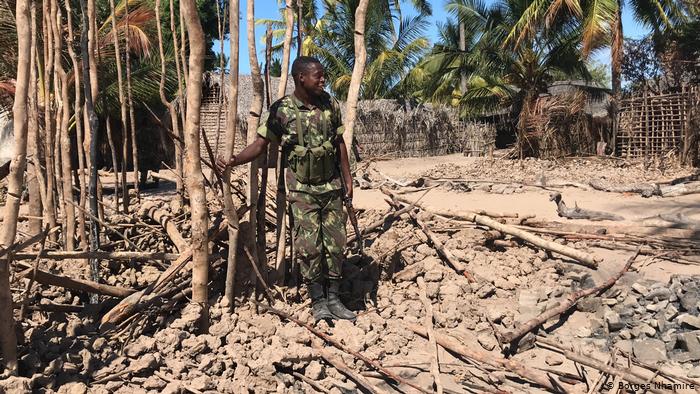
File photo: DW
- The Mozambican government does not anticipate asking the United Nations to send a force to help fight insurgents in Cabo Delgado. Furthermore, Mozambican analyst Fernando Lima points out, the “pro-activism” that the situation demands cannot come from a ‘peacekeeping’ force.
Mozambique’s Minister of Foreign Affairs and Cooperation, Verónica Macamo, said this Tuesday (29.09) that Mozambique did not at present intend asking the UN to send a force to help the country fight the alleged jihadist groups in the north of the country, where attacks have already resulted in about 1,000 deaths and internally displaced a further 250,000 persons.
“I don’t know, nor do I know if it would in fact be the best practice to, at this moment, right now, bring in a United Nations force. I believe that our young people [members of the Defence and Security Forces] who are in the field of operations are working,” Radio Mozambique quotes Macamo as saying.
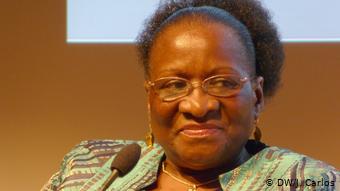
The Mozambican foreign minister acknowledged, however, that the situation in Cabo Delgado was complex. “Terrorism is a very complicated thing, especially when we are talking about Cabo Delgado, with that geography and that dense forest,” she said.
“We do not think there are problems of lack of strength or capacity on the part of our young military and police. It seems to us that, in fact, it is the complexity of the terrain, but [we feel] that they are gaining ground, they are striving and we feel that the results are there,” she concluded.
UN has no offensive role
Addressing the government’s position, analyst Fernando Lima told DW Africa that the United Nations does not take an offensive role, and usually acts solely as a peacekeeping forces.
This is not appropriate in the current scenario, he adds.
“This is a situation which demands ‘pro-activism’ by the forces in the theatre of operations, which cannot be [translated into] the presence of a peacekeeping force”.
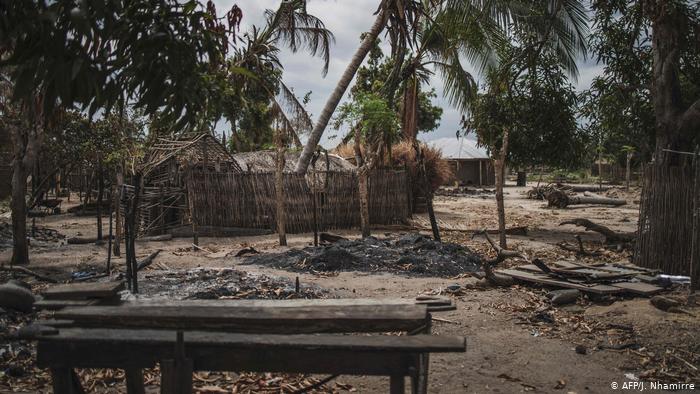
Lima notes that the government has shown a very restrained attitude towards the requests for international support, namely to the Southern African Development Community (SADC) and more recently the European Union (EU), in terms of logistical issues.
“The perspective of the government of Mozambique is to rely mainly on local capacity, notwithstanding not neglecting [sourcing] material support from abroad, in the sense of financial or logistical means to combat violence in Cabo Delgado,” he explains.
Fight terrorism without outside help?
But can the Mozambican Defence and Security Forces (FDS) defeat terrorism in Cabo Delgado without outside help?
“The answer cannot be a simple yes or no,” Lima says.
“The [reaction] of the Armed Forces to enemy offensives this year was disastrous, and saw the destruction and occupation of some villages in Cabo Delgado,” Lima admits. But more recently, the response of the Armed Forces and its allies, including mercenary forces, seems to demonstrate “more balance in the fighting, especially since the beginning of May this year”.
About two weeks ago, Mozambique requested logistical support from the EU to help combat alleged jihadists in Cabo Delgado. European Union ambassador Antonio Sanchéz Benedito Gaspar told reporters that the bloc would not abandon Mozambique, acknowledging, on the contrary, that “in difficult times, friends are needed even more”.
“We have to create better security conditions in northern Mozambique, but also conditions for more sustainable equitable economic growth to support the population. We are available to support Mozambique in fighting terrorism. Let’s see what the specific requests from Mozambique are,” the diplomat commented.


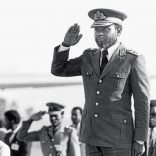


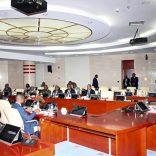
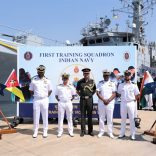
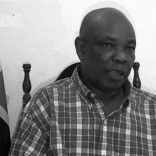




Leave a Reply
Be the First to Comment!
You must be logged in to post a comment.
You must be logged in to post a comment.